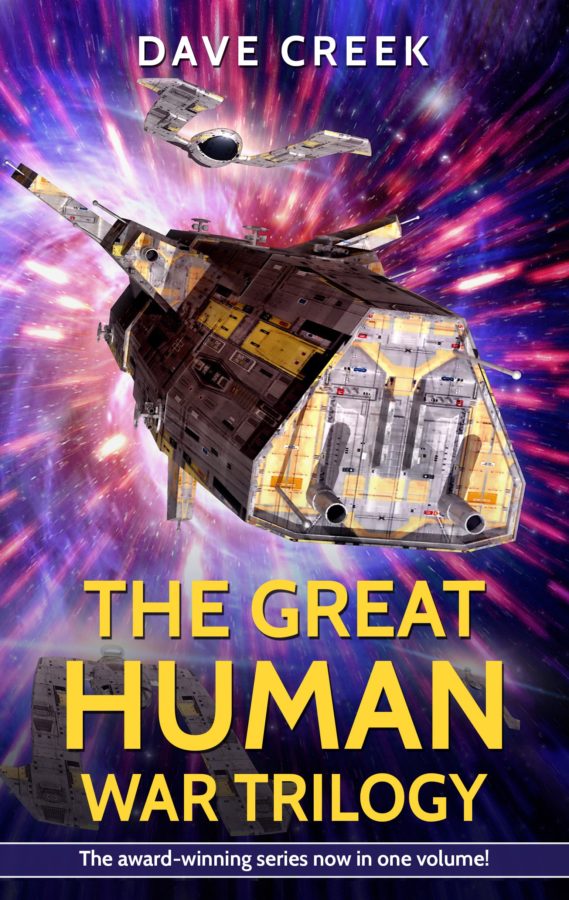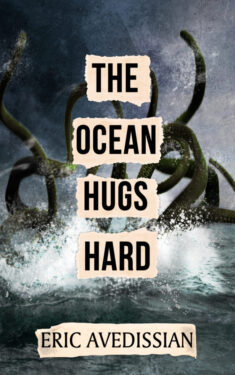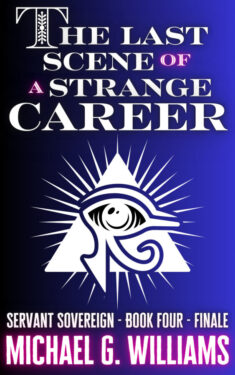by

THE AWARD-WINNING SPACE OPERA SERIES NOW AVAILABLE IN ONE VOLUME!
A GALACTIC WAR THAT PITS HUMANITY AGAINST ITSELF!
Included:
A CROWD OF STARS -- Earth Alliance starship captain Jon Hendrik barely escapes death at the hands of the Star Rebellion, and vows to defeat it! Meanwhile, Rachel Adero, a young woman scarred by poverty, joins the Star Rebellion to fight for the destruction of the Alliance! That's as the ruler known only as the Eminence is pulling the strings on both sides of the conflict!
WINNER OF THE 2016 IMADJINN AWARD FOR BEST SF NOVEL!
THE FALLEN SUN -- Ambassador Jon Hendrik works to keep dueling political factions from re-igniting The Great Human War! When he and his lover Niva Tessler are kidnapped and Niva's family members are placed in danger, the conflict becomes all too personal!
THE UNMOVING STARS -- In the midst of The Great Human War, a sneak attack leaves the starship Shen Kuo with half its crew dead and the ship itself crippled and adrift thousands of light-years from home. Now, with Captain Kiernan Taylor facing a return journey that could take decades, he must seek out a "shortcut" home even as he perceives the first glimmerings of a mutiny!
WINNER OF THE 2018 IMADJINN AWARD FOR BEST SF NOVEL!
- 1 To Be Read list
Publisher: Independently Published
Genres:
Tropes: Dystopian Governments, Galactic Civilization, Interstellar Travel, Space Battles
Word Count: 130,000
Setting: Interstellar space, alien worlds
Languages Available: English
Tropes: Dystopian Governments, Galactic Civilization, Interstellar Travel, Space Battles
Word Count: 130,000
Setting: Interstellar space, alien worlds
Languages Available: English
Murmur, a little sadly, how Love fled
And paced upon the mountains overhead
And hid his face amid a crowd of stars.
When You are Old, W.B Yeats
One.
Another plasma bolt from the unknown craft on its tail, and Solar Eagle's frame shuddered as the starcraft dove toward the neutron star at the center of Callippus system. Why the hell is a Star Rebellion ship shooting at us? Captain Jon Hendrik wondered. We're just an exploratory craft.
READ MOREHe settled his two-meter frame into the command chair. Solar Eagle was a small craft, with few resources when it came to weaponry, shields, or stardrive capability. As the ship shook again, Jon thought, One good hit, and we're just more cosmic debris getting sucked into that star. If I believed in God, I'd be thinking I'm close to meeting Him in there.
The Eagle's First Officer, Isabella Martín, from the main sensor console: "The star's grav is playing hell with their targeting."
Jon muttered, "Their targeting seems just fine to me. Any idea what kind of ship we're up against?"
"Hollowed-out asteroid. That's why we didn't notice it until they opened fire."
Jon spoke to the helm officer, Lieutenant Commander Eleanor Marsh. "Helm -- we'll skirt the rim of the disk, then swing around beneath its underside and the lower gas jet."
Marsh said, "Aye, sir," and punched in the course.
"Then set a vector using stardrive for one-hundredth of a second. Whoever's shooting at us, we're going to ditch them."
Jon couldn't see Marsh's expression, only how her fingers hesitated over the nav console. How her head raised toward the viewscreen, and the image of the neutron star in Solar Eagle's path.
She's wondering the same thing I am, Jon thought. So close to a star, we could end up anywhere or nowhere. And the crew won't have a chance to sedate themselves for the jump.
Stardrive jumps were routine for any spacer, but they took their toll, even a quick, in-and-out jump which would be all they could manage on such short notice. It was best to have a half-hour or so to make sure everyone was strapped in and lightly sedated.
But that wasn't going to happen, not with plasma bolts lashing Solar Eagle several times a minute.
Then there was the other element to the jump that made it potentially suicidal. To approach a neutron star at high sublight velocity, without the protective cocoon of a stardrive field -- to enter the realm of extreme tidal forces and magnetic fields that surrounded such an object -- was madness. He told Marsh, "Heroic or stupid, let's do it. Exactly when I said."
The star's accretion disk pinpointed it like a bullseye. At the center of the disk, twin jets of incandescent gas were squeezed out in opposite directions perpendicular to the disk itself, as if the bullseye were pierced with a spear.
Jon, knowing it was irrational, nevertheless sensed the star consciously pulling Solar Eagle into a fatal plunge where tidal forces, over 200 Earth gravities, would pull it apart.
At least death will be instantaneous, Jon thought. Faster than the Human nervous system can transmit pain.
Another plasma bolt slammed into Solar Eagle. If we were only a warcraft, Jon thought, we could give them a real fight, instead of having to cut and run.
Or at least find out who the hell they are.
Solar Eagle approached the neutron star at an angle just above the plane of the disk. The upper gas jet was slightly blue-shifted, the one below red-shifted -- the jets burst out, after all, at a quarter of the speed of light.
Between strikes from the unknown craft only light-seconds behind them, the stillness on Solar Eagle's bridge was absolute. No one moved except to check an instrument or glance at the forward viewscreen, where the neutron star's energies raged.
Solar Eagle passed through the plane of the accretion disk. The chaos that was the core of the neutron star winked out, then returned as the disk eclipsed it. Solar Eagle's bridge was bathed in a faint bluish light that marked the fate of the matter drawn into the star.
Klaxons blared, a ten-second warning for the crew to brace themselves, physically and mentally, for the stardrive jump. Jon never looked forward to such a jump without drugs. He took a deep breath, and grasped the arms of his command chair.
The universe disappeared --
He sees his brother's farm in Somalia.
Nine years old, he stomps his feet in anger as his mother tells him he has to finish his homework before he can play with friends.
The sound of rustling leaves deep in a wooded area.
-- and returned, faster than thought.
Jon's stomach churned. He reached for an urp bag at the side of his chair -- too late. Sickly-sour fluid erupted from his mouth and splashed onto his lap and onto the floor.
Jon groaned and slumped into his chair. His temples pounded, every joint and muscle ached, and his thoughts were as chaotic as the neutron star he hoped they'd just left behind. His body felt chilled to the core, and he felt sweat beginning to dry on his forehead.
Blurred vision brought only impressions of his surroundings: Lieutenant Commander Marsh slumped over her console, which was peppered with red telltales. Main viewscreen blank, no visual or sensor readouts visible. Vomit and urine smells permeated the bridge's air, and made his stomach want to turn over again.
Jon rose on shaky legs. He groaned and pressed fingers against his left temple. Other Solar Eagle crewmembers were in no better shape. Some, like Jon, were just staggering back to their feet, making their way back to their work stations, or trying to help injured or ill crewmembers.
Jon's first concern: has that ship managed to follow us with its own stardrive jump? If it did, we have to recover faster than that crew does. We can't piss away this brief advantage.
He went to Marsh's console and lowered her gently to the floor -- no time to check her condition. Get the sensors working, a quick scan --
They were in free space, Callippus System the better part of a light-year behind. No other craft detected on an initial sensor sweep.
Which means, Jon thought, they didn't exit their jump closely enough to be a threat. Or they didn't even try.
His next thought: What about Isabella?
The ship safe, no threat imminent, Jon made his way toward the main sensor position where Isabella was just rising from the floor. She'd thrown up, too, and the front of her white and gold uniform was a stinking mess. He took her by the arm. "Go get cleaned up," he told her.
"But the crew -- "
"I'll work with the crew until you get back."
"No, sir." Isabella's gaze was fiery and unyielding.
Jon understood. He wouldn't have made the offer to a First Officer who wasn't also his lover. "Very well," he said, turning his attention to status readouts that were just coming back online. "It looks like med teams are on the way. Let's do some triage before they get here."
Jon went back to check Marsh first. As he pressed his fingers against her neck to search for a pulse, she stirred, groaned. Med teams entered the bridge and began checking out Marsh and several other unconscious crewmembers.
A small holographic image of the Eagle's Chief Engineer, Marie Sovel, appeared next to Jon's command chair. "We've got two dead down here," she said. "Carl Devries and Anton Minsky. Others injured."
"Any damage?" Jon asked.
"One new-space generator's down. Auto-repair's underway. But we can still make another jump if we have to."
"I'll get you some help down there," Jon said. The engineer's image disappeared. Jon punched a call button at his command chair. "Any available engineering techs, report to the engine room. Also med units and . . . morgue team."
Within fifteen minutes, Solar Eagle's bridge was populated by crewmembers who hadn't been affected severely by the quick jump or who had replaced those who were.
Jon was sitting in his commander's chair again when Isabella came up next to him. "We'll be back to Earth within a few days."
"None too soon. I want to see this crew back safely." More quietly, he told her, "You should go into every compartment of this ship. Make sure everything's secure, and everyone's well. I know the nanotech systems will have started on repairs, but I don't want to take any chances."
"I'll do that, sir."
Jon said, "That way the crew can look good for me when I make the same rounds in a few hours."
"You can also tell them we made a victory today. Ship's still operational. We're headed home."
Jon said, "The rebels made a point, too. The Alliance is vulnerable. And the next time Solar Eagle goes out, we're not going to be just an exploratory ship. We're going to be a warcraft."
As the Eminence sits in his dressing chair within his palace on the planet Demeter, he is suddenly disgusted by the fussing of his servants, their insistence upon garbing him in jeweled robes, their rough hands poking dermal editors at his face.
And the chatter!
"Please lift your chin, Eminence."
"Please place your arms into the sleeves, Eminence."
"That looks marvelous, Eminence."
Enough, he thinks, reasoning that he has no need for elaborate dress or cosmetic improvements. He shoulders his servants aside, then lowers his arms, letting the gaudy robes slide to the floor, the rustling of cloth punctuated by the clatter of jewels against the marble floor of his palace -- a structure carefully crafted to appear to have been the work of stone cutters, woodworkers, and countless other craftsmen, but which in reality has been extruded by nanotech forbidden to all here on the planet Demeter, the homeworld of the Star Rebellion.
All except the Eminence.
A few quick strides and he's standing on the broad balcony overlooking the capitol square, reveling in the acclamation from the masses below.
In a way, the Eminence has sculpted the features of his people as surely as those non-existent craftsmen would have sculpted his palace; the faces of all those who stare up at him in admiration are mottled as if in camouflage, their skin, like that of his servants, rough as sandpaper -- all to protect them against the massive U.V. rays of Demeter's primary, Sapphire.
The Eminence's own skin is smooth, unblemished, and considered proof of his superiority to those he rules; the crowd knows nothing of the more subtle, imperceptible changes that protect his own skin.
Even as the Eminence raises one arm to acknowledge the adoration of the cheering crowds, he senses a presence behind him. His wife, Elena, belly bulging in the final stages of pregnancy, arrives at his side, and the crowd roars even louder. The Eminence thinks, They anticipate my son's birth as enthusiastically as I do. They see my bride's skin, as smooth and unblemished as my own and know it as a symbol of what will be an unbroken line of genetic superiority that will soon lead to the inevitable victory over the Earth Alliance.
As the crowd noise subsides, the Eminence speaks, his amplified voice echoing throughout the square: "I cannot bring you sufficient medical care or housing, or food -- all because of the Earth Alliance!"
And how I've used that belief to keep you in line!
Scattered boos and hisses from the crowd.
The Eminence continues: "I am like many of you -- I just want to raise my family in peace." He indicates his pregnant wife. "I know you anticipate my son's birth just as eagerly as I do. But we must prevent the Alliance from taking us to war!"
As I make sure the Alliance seems to do just that. And even as I guard myself against those on this very world who would betray me.
The crowd's screams grow louder and the Eminence must raise his voice to be heard: "But the Alliance's own diplomats are awaiting transportation from their embassy, since we've insisted they leave. Soon they'll return to Earth and all its riches that their nanotechnology brings!"
The Eminence shakes his fist toward the distant Alliance embassy. "But you can go confront these cowards before they escape!
The crowd begins to move, and the Eminence smiles. As long as I can control my people so precisely, he thinks, the Alliance doesn't have a chance.
Rachel Adero nearly lost her footing as the mob surged toward the high wall surrounding the Earth Alliance compound. Then hands grabbed her under her arms and kept her moving. I'd have been crushed, she thought.
An elderly woman wasn't as lucky -- Rachel heard her screams cut off abruptly as she fell, saw nearly a dozen other people go down like dominos. As a steady trot turned into a flat-out run, the chant went up: "Freedom! Ban the Alliance!" Even though the Eminence had made Demeter the home of the Star Rebellion, the planet hadn't yet rid itself of the Alliance's influence. Its embassy's presence here at Demeter's primary starport was a persistent reminder of that.
It was the main reason she'd become an ensign in the Star Rebellion's Space Service. Taking part in this demonstration, she reasoned, will remind me of why we fight.
People in the mob grabbed clubs and stones from the debris of demolished houses as they advanced on the circular compound next to the starport. Rachel wondered where Alliance port security was. The one thing they can do efficiently, she thought, is bust heads.
As she fought to keep her balance, Rachel saw faces furrowed with anger and eyes wide with desperation, heard voices growing hoarse with shouting.
They were all faces similar to hers -- dark mottled skin, whatever their ethnic background, and skin rough as sandpaper. My forebears came from the Middle East and Europe, she thought. But you'd never be able to tell it from the way I look. The Alliance has laid a nearly uniform look over all of us.
Rachel pursed her mouth. They can sculpt our faces, but they can't feed everyone or give us all jobs, all because the Alliance is keeping us down.
Demeter's sun, Sapphire, was a blue-white star that bathed the planet in much more ultraviolet radiation than Earth received. Animals native to Demeter had shells or thick layers of fur to protect their skin, and deep eye sockets to protect their sight. Humans had no such protection.
Rachel had resisted skin treatments when she'd first arrived on Demeter as an 11-year-old child; no one had even mentioned the idea back on Earth at the Colony Recruitment Station in her hometown of Hiroshima. But a child does what her parent demands. Especially when the alternative is to live your life under the constant threat of extreme sunburn, blindness, and skin cancer, or go around wrapped up like a mummy.
Thus, the sandpaper-like skin textures of Humans on Demeter. Humans who often went without jobs and, therefore, without decent shelter or food. Some of the faces near Rachel were terrifyingly gaunt, with sunken cheeks and skeletal features. She marveled that some of these people could even walk, let alone storm the embassy. Most everyone wore clothing that was torn and frayed, Rachel included.
The mob paused as it neared the eight-meter-high wall surrounding the embassy compound. That wall leaned outward at a slight angle and Rachel had always heard it was nearly frictionless.
And right now, she thought, it also looks seamless.
Rachel wiped sweat off the rough skin of her face and fought to catch her breath. She stood on tip-toes to see as much as she could over the heads of those around her. Try as she might, she couldn't make out an entryway in the wall.
Not that people didn't try -- they threw rocks and clubs against that wall, and a few pounded their hands bloody against it. She realized why Alliance security wasn't present: why endanger the safety of their security guards when they could let the mob exhaust its energies against the wall?
It was a tactic that appeared to be working. Rachel soon had plenty of elbow room as the mob spread out. People put down their rocks and clubs. Several leaned against the wall or sat at its base as if acknowledging its victory over them. Rachel unaccountably found herself edging toward the wall, as if it represented comfort and security instead of repression and frustration.
Rachel heard twin sonic booms and soon spotted an orbital shuttle far above. It's from the Earth Alliance, Rachel realized.
As the familiar silhouette of the craft came lower, people raised themselves from the ground or where they'd come to rest against the wall and shook their fists at the shuttle. A chant rose up: "Alliance go home! Alliance go home!" Rachel thought, Earth is hundreds of light-years away, yet it can't let us have any peace here on Demeter.
The shuttle descended beyond her sight, behind the wall.
That's when the stingers arrived.
Tiny robots less than a centimeter across zoomed in from all directions. Their tiny wings were mere blurs, and their cylindrical bodies narrowed down to needle-like points. Rachel's stomach threatened to flip-flop, and people around her were staring upward in fear.
We're at the mercy of whoever's controlling those things, Rachel thought. One touch of those needle tips, and we could all drop dead, poisoned. Or we could be infected with a plague that we'd take back to our friends or families.
Not that I have any family anymore.
The stingers zoomed over everyone's heads. Involuntarily, Rachel ducked, as did many people around her. The stingers lifted into the sky, however, and bunched together around eight or nine meters above the crowd. There's dozens of them, Rachel thought. Hundreds. All pointing at us.
For a few moments, the stingers simply hovered, wings buzzing. People looked at one another, wondering what would happen next.
The stingers pounced.
The panicked mob ran in all directions in a futile attempt to escape the stingers, and Rachel was knocked face-first to the ground. She cried out in pain as someone stepped on her left shoulder, stumbled, and fell next to her. Another person's filthy boot stomped down in front of her face. She tasted dirt, spit it out. She managed to raise herself to knees and elbows and saw people swatting at the stingers, but they were faster than Human reflexes.
One stinger flew against the neck of a young woman right in front of Rachel. The woman screamed, slapped her hand to her neck, then looked at her hand, mystified. Rachel didn't see any blood anywhere against the woman's rough skin, and she didn't seem otherwise injured.
People were still rushing around as if they could find a place the stingers couldn't reach them. They trampled anyone in front of them in the process. I'm worried more about this panicky crowd than I am the stingers, Rachel thought. She was afraid to lift her head too high, afraid to stand. Still on hands and knees, she saw an opening and rolled over and over until she was flush against the looming wall.
A sharp pain struck her right leg. Instinctively, she slapped at it just as the woman she'd seen earlier did, but the stinger had already flitted away.
Rachel pulled up the leg of her jeans. The wound expanded from a pinpoint to about the size of her thumbnail as she watched. Her skin's mottling was fading and it was losing its smooth, sandpaper-like texture. It injected nanites that reverse bio-sculpting, she realized.
A closer look at her leg, and she realized the effect had stopped, leaving only a smooth patch of skin there.
Part of Rachel was relieved: They aren't trying to kill us, she thought. The message from the Alliance was clear, however -- it could reverse any protester's bio-sculpting anytime it wished. That could amount to anything from an inconvenience to a death sentence if you couldn't afford a new bio-sculpt -- if you can't go outside, how do you get to work? How do you scrounge for food? Some people could only wrap themselves in robes or hide indoors during the day for so long -- eventually they became careless or tired of hot clothing in the summer or just threw off their clothing and challenged the sun to do its best.
Who knows what other atrocities the Alliance could threaten us with, she thought.
No wonder the Eminence speaks out so often about nanotech. The crowd was dispersing, with people rushing away from the wall in all directions. The security of the mob was vanishing, and Rachel felt exposed, naked.
She started toward her apartment, purposely taking a different side street from the one the mob had used to get to the impenetrable wall. By the time she'd distanced herself by four blocks from the wall and the embassy it shielded, she was walking along empty streets. Not being associated with the mob anymore gave her some small comfort.
The tubes didn't run from the starport area to Rachel's neighborhood, but it wasn't too far to walk. An hour and a half later, she was climbing the worn wooden stairs to her fifth-floor apartment.
Home to think about what kind of supper to make from the meager rations that are all I can afford, she thought.
But once I'm assigned to a Star Rebellion ship, perhaps I can change that, and soon.
COLLAPSERicky L. Brown on AMAZING STORIES wrote:"Dave Creek's stories bring classic science fiction into the modern day without losing what made the Golden Age so golden." -- Jason Sanford, two-time Nebula Award finalist.
The Unmoving Stars begins with heart-pounding tension from the first page . . . Though the large cast of characters and their diverse personalities and ethnicities is what stimulates the drama in this story, it is the social implications of being so far from home and the cultural struggles found in everyday characteristics of the human condition that sets the overall tone.
The Unmoving Stars is a fast-paced story that will take readers thousands of light-years away to discover that man’s worst enemy is still man.
A CROWD OF STARS, the first book in this trilogy won the 2016 Imadjinn Award for Best SF novel.
The third book in the trilogy, THE UNMOVING STARS, won the 2018 Imadjinn Award for Best SF novel.





